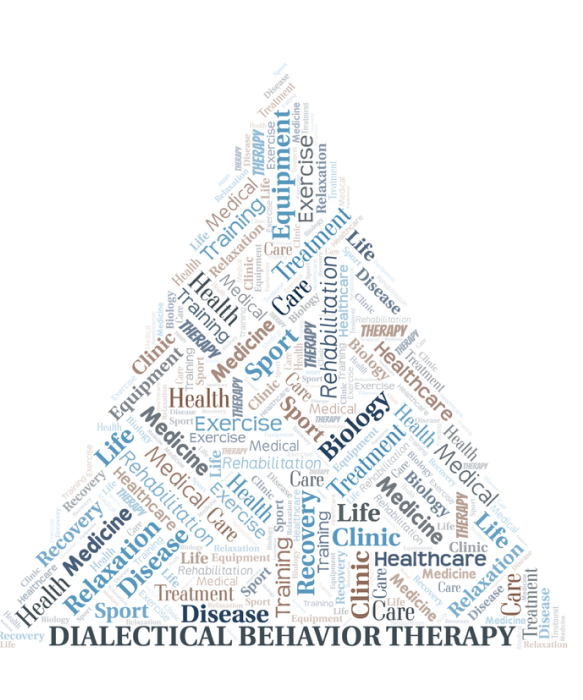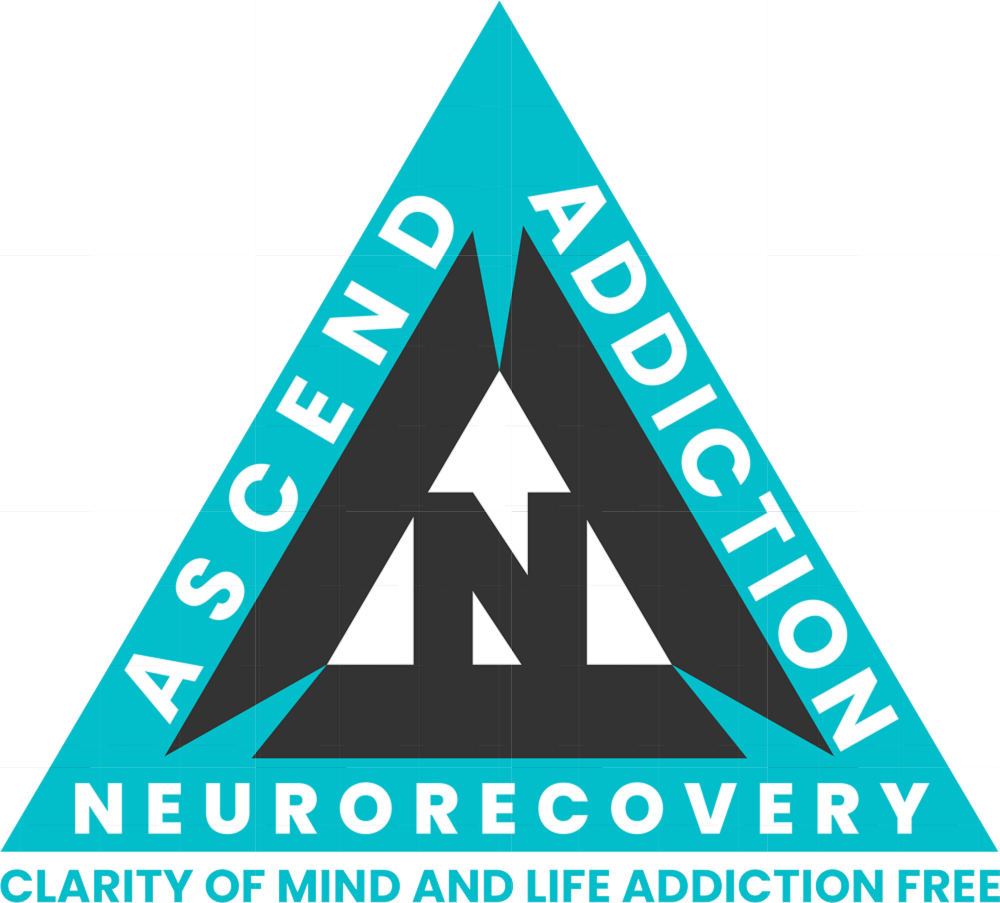Ascend Addiction NeuroRecovery
Transformative Dialectical Behavior Therapy (DBT) for Lasting Change
At Ascend Addiction NeuroRecovery, we offer evidence-based Dialectical Behavior Therapy (DBT) to help individuals struggling with substance use disorders (SUDs) and co-occurring mental health challenges. Our skilled therapists develop personalized treatment plans that emphasize emotional regulation, distress tolerance, mindfulness, and interpersonal effectiveness, enabling clients to break free from destructive patterns and achieve long-term recovery.
Connect with Ascend Addiction NeuroRecovery to learn about our individualized DBT treatment programs that can assist you or a loved one in overcoming addiction.

What Is Dialectical Behavior
Therapy (DBT)?
Dialectical Behavior Therapy (DBT) is a research-backed, cognitive-behavioral approach designed to help individuals manage intense emotions, self-destructive behaviors, and interpersonal difficulties. Originally developed to treat borderline personality disorder, DBT has proven highly effective for addiction recovery by teaching individuals how to develop emotional resilience and healthier coping mechanisms If you or a loved one is seeking effective addiction therapy, contact Ascend Addiction NeuroRecovery today to learn more about our DBT treatment programs.

What Is Dialectical Behavior
Therapy (DBT)?
Dialectical Behavior Therapy (DBT) is a research-backed, cognitive-behavioral approach designed to help individuals manage intense emotions, self-destructive behaviors, and interpersonal difficulties. Originally developed to treat borderline personality disorder, DBT has proven highly effective for addiction recovery by teaching individuals how to develop emotional resilience and healthier coping mechanisms If you or a loved one is seeking effective addiction therapy, contact Ascend Addiction NeuroRecovery today to learn more about our DBT treatment programs.
What to Expect from Dialectical
Behavior Therapy
At Ascend Addiction NeuroRecovery, our DBT program is structured to promote emotional balance, behavioral transformation, and improved relationships. Throughout therapy sessions, clients learn:
- Mindfulness Practices – Techniques to increase self-awareness, stay present, and avoid impulsive reactions.
- Distress Tolerance – Strategies for managing emotional pain and high-stress situations without resorting to substance use.
- Emotional Regulation – Methods to identify, understand, and manage emotions effectively.
- Interpersonal Effectiveness – Skills to communicate assertively, set boundaries, and build healthier relationships.
How Dialectical Behavior Therapy Supports
Addiction Recovery
DBT helps individuals struggling with addiction by addressing the underlying emotional and behavioral triggers that lead to substance use. During therapy, our clinicians work closely with clients to:
- Develop coping strategies that reduce reliance on drugs or alcohol.
- Identify and manage triggers that lead to cravings and impulsive behaviors.
- Practice mindfulness techniques to stay grounded and prevent relapse.
- Strengthen emotional regulation skills to break the cycle of addiction.
Benefits of Dialectical Behavior Therapy for
Addiction Recovery
Engaging in DBT therapy at Ascend Addiction NeuroRecovery offers numerous benefits, including:
- Improved emotional stability and resilience.
- Effective coping mechanisms to replace destructive habits.
- Enhanced self-control and impulse regulation.
- Healthier interpersonal relationships and communication skills.
- A stronger sense of self-worth and personal empowerment.
- Reduced cravings and long-term relapse prevention.

Find Comprehensive Dialectical Behavior Therapy at Ascend Addiction NeuroRecovery
With a focus on tailored therapy, a supportive setting, and a research-backed program, Ascend Addiction NeuroRecovery can help you overcome your addiction. By combining research-based Dialectical Behavior Therapy (DBT) techniques with holistic care, our specialists design individualized treatment plans for each patient.
Seeking personalized addiction therapy that works? You have our absolute support. To learn more about our Dialectical Behavior Therapy services and how we can walk with you on your journey to recovery, call +1 403-351-1100 or book an appointment online.
FAQs
Have Questions? We
Have Answers!
Browse through our frequently asked questions to find the answers you need
about our programs, enrollment, and training process
DBT’s central principle — the balance between acceptance and change — reshapes how the brain responds to stress and emotional triggers. At Ascend Addiction NeuroRecovery, this dual focus encourages clients to reduce resistance (acceptance) while simultaneously cultivating healthier behavioral strategies (change). Neurologically, repeated practice of these skills enhances cognitive flexibility and strengthens neural pathways linked to emotional regulation. This balance reduces impulsivity, stabilizes mood, and lessens reliance on addictive coping mechanisms, allowing clients to experience tangible brain-level improvements that reinforce long-term recovery.
Unlike traditional talk therapy, which often centers on exploring feelings, DBT at Ascend Addiction NeuroRecovery is highly skills-based and action-oriented. Clients learn structured techniques — mindfulness, distress tolerance, emotion regulation, and interpersonal effectiveness — that directly target the neurological and behavioral roots of addiction. While talk therapy can provide insight, DBT emphasizes practice and application, rewiring the brain through repetition and reinforcement. Ascend Addiction NeuroRecovery further distinguishes its DBT program by integrating it with neuroplasticity-based interventions, ensuring that changes are understood intellectually and embodied neurologically.
Yes, DBT at Ascend Addiction NeuroRecovery is delivered in both group and individual formats, each serving a distinct function. Individual sessions provide tailored strategies, focusing on personal challenges and reinforcing neural changes. Group sessions simulate real-world social interactions, offering opportunities to practice skills within a supportive community. This dual structure is vital: it strengthens both intrapersonal and interpersonal pathways in the brain. Clients learn not just to regulate themselves but to connect effectively with others, which is critical in sustaining meaningful, long-term recovery.
Addiction often damages both brain circuitry and relationships, eroding trust and social connection. DBT’s interpersonal effectiveness skills help rewire neural pathways involved in empathy, communication, and impulse control. At Ascend Addiction NeuroRecovery, these skills are practiced repeatedly, teaching clients how to set boundaries, express needs, and resolve conflict. Neurologically, this strengthens the brain’s social circuits while emotionally, it rebuilds relationships that addiction may have strained. The combination of brain repair and relational healing fosters resilience, belonging, and healthier networks that sustain recovery.
DBT’s dialectical framework—balancing acceptance with change — mirrors the integrative philosophy of Ascend Addiction NeuroRecovery. Neuroscience informs how new pathways are formed; psychology provides insight into thought and behavior; and holistic care nurtures body and spirit. DBT bridges these domains by offering practical tools that connect theory with lived experience. Mindfulness cultivates neurological presence, emotion regulation supports psychological stability, and acceptance enhances spiritual resilience. Together, these elements create a unified model of care where DBT is not an isolated therapy, but a keystone of lasting transformation.
